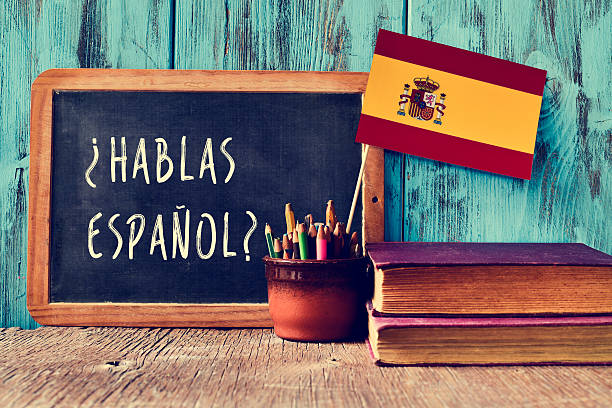What To Look For When Hiring A Spanish Interpreter
A Spanish interpreter is a skilled professional trained to convert spoken words from Spanish to another language and vice versa, ensuring that the original meaning, context, and tone are preserved. To use an over-simplified example; an interpreter listens to a message, and then verbally conveys that message, in a different language. But it's not just about interpreting words - it's about relaying emotions, tones, and cultural nuances.
The Rise of the Spanish Interpreter
In recent years, the demand for Spanish interpreters has surged, painting a vivid picture of their essential role in today's global landscape. But what are the key drivers behind this?
Leading the way in this expansion is the unmistakable spread of Spanish speakers. Based on data from this article, Spanish takes the spot as the second most commonly spoken language when we look at the number of people who speak it as their first language across the globe.
Such widespread use of the Spanish language naturally leads to a greater need for interpreters. This is especially true in today's world, where businesses and diplomatic relations frequently crossed international borders.
The more people connect across different countries and cultures, the more essential it becomes to have individuals skilled in bridging these linguistic gaps. This trend shows the rising importance and recognition of Spanish in global dialogues.
Speaking of business, globalization has significantly transformed the commercial landscape. The World Trade Organization notes the prospering trade ties between historically English-speaking countries and Spanish-speaking nations, highlighting the role of interpreters in facilitating these partnerships.
The story within the United States paints an even clearer picture. The U.S. Census Bureau reports a steadily growing Hispanic population - representing the largest minority group in the country. As this community continues to flourish, so does the requirement for Spanish interpreters across several sectors, from healthcare and legal, through to education and public services.
Yet, it's not solely about population metrics. The cultural exchange facilitated by Spanish interpreters is nothing short of wondrous, and transformative. Celebrated events like the San Sebastian Film Festival or the revered Guadalajara International Book Fair are testament to the global appeal of Hispanic arts and literature.
Here again, interpreters ensure that these cultural offerings do not lose their meaning, but are made relatable and accessible to global audiences.
Finding the Right Spanish Interpreter
Choosing the right Spanish interpreter isn't just about language proficiency. It's about cultural awareness, understanding context, and building bridges of communication that remain sturdy in both calm and stormy weather. Here are four key factors to consider when choosing the right interpreter for your needs.
Understanding the requirements
First things first: pinpoint your specific needs. Do you need an interpreter for a business meeting? Maybe a medical appointment? Or perhaps a legal proceeding?
Each sector has its own special blend of lingo, understanding, and in some cases even certifications. For instance, in the medical field, the term “intoxicado” doesn't mean intoxicated; it generally means poisoned. A slight misinterpretation here can be critical!
Cultural nuances and local flavor
Language is deeply intertwined with culture. A word or phrase might have different connotations in various Spanish-speaking regions. The choice of interpreter should not just be about linguistic capabilities, but also a deep-rooted understanding of regional cultural nuances. Remember, sometimes it's not about what's said, but how it's said.
Technologically adept
Many interpretations are happening virtually, which is why you should ensure your interpreter is comfortable with the necessary technology. Can they work with video conferencing tools? Are they adaptable to changing scenarios, like poor network connections or sudden schedule changes?
Continuous Learning
The most effective interpreters are those who have made learning a lifelong journey. Whether it’s staying updated with evolving terminologies, or upskilling around industry-specific standards, the right interpreter will always be on a quest for knowledge.
At the end of the day, the right Spanish interpreter will not just interpret words but will also ensure the spirit, emotion, and intent of the conversation remain intact.
Interpreter IO provides a comprehensive interpreter management and delivery platform. It is the choice of organizations who need interpreting services; whether over the phone, through video or onsite.
With its state-of-the-art technology, it offers businesses, institutions, and individuals instant access to a pool of highly skilled Spanish interpreters. Whether it's for a multinational conference, a legal deposition, or a medical consultation, the platform ensures that language is never a barrier.
Conclusion
Through platforms like Interpreter IO, the task of bridging linguistic and cultural gaps becomes seamlessly efficient, making the world a more comprehensible place for all.
As we continue to navigate this vast global landscape, the presence of competent, culturally-aware, and technologically proficient interpreters will remain invaluable. They are, after all, true harbingers of unity, understanding, and mutual respect in a world that constantly thrives on connection.
For any inquiries, please feel free to contact Interpreter IO for further assistance.
